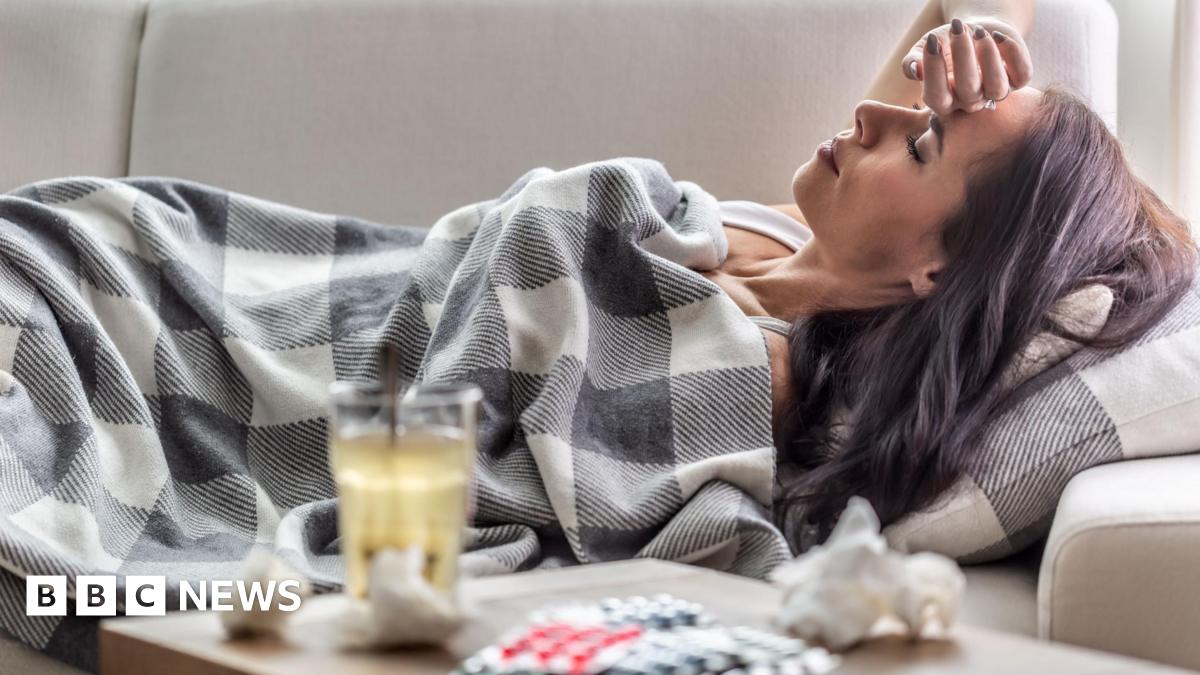There is some talk of a "summer Covid wave" at the moment. We all seem to know someone who has had it lately, or a friend who has been off sick.
But have cases really gone up and are there any new variants we should be worried about? What else do we know right now?
Is there a spike in infections?
Possibly, but it is difficult to tell.
We do know there has been a very small increase in the number of people being admitted to hospital with Covid.
The number went up to 3.31 admissions per 100,000 in the week to 16 June, compared with 2.67 per 100,000 in the previous week.
The largest group of people hospitalised with Covid were those aged 85 and over.
In terms of how many people have Covid and stay at home, it is difficult to say.
We no longer collect national data in the way we used to, as far less testing takes place now.
That means many cases of Covid are not being recorded.
The data, external we do have is based on laboratory tests taken across the country, mostly swabs taken from people in the healthcare system.
According to this data, about one in every 25,000 people had Covid on 26 June.
This may sound a lot but it is a tiny number compared with what we saw at the start of the pandemic. In March 2020, it was one in 13.
However, rates of Covid go up and down throughout the year, without necessarily becoming a cause for concern.
Prof Paul Hunter, an epidemiology expert from the University of East Anglia, told the BBC he did not believe the current Covid rates were concerning.
“I think we're probably seeing about as much infection this year as we were seeing last year - a little bit less, but not hugely less.”
He believes that generally, we are seeing far fewer deaths and far fewer hospitalisations from Covid than last year.
Is there a new Covid variant?
In recent months, we have seen a
new group of variants , externalof Covid emerge, collectively nicknamed as FLiRT.
Among them is the dominant JN1 variant and the KP2 variant. They account for many current Covid cases in England. The KP3 variant, which has driven a rise in cases in the US, has also been identified in the UK in small numbers.
The UK Health Security Agency (UKHSA) said it needed “more data” on the new variants to understand how severe and transmissible they might be.
The agency, which is responsible for public health, also said it was “impossible” to tell at this stage whether these variants were behind the small rise in hospital admissions.
As it does with all new strains, the UKHSA said it would “continue to monitor these variants” in the UK and internationally and would gather more information on how well the vaccines protect people against them.
But the agency said there was no current change to public health advice.
It is normal for a virus to change and mutate and the UKHSA says the healthcare system is still “getting to grips” with the ebb and flow of cases.
Prof Hunter said Covid was now part of life and should not be as alarming as it once was.
He said: “We are all of us going to get repeated Covid infections from births through to death.
"Generally what we've seen is that over the last three years, four years, the severity of illness associated with Covid has gone down a lot.
"Ultimately, it's going to become another cause of the common cold and, for many people, that's what it is now."
He added: “To be honest, you can't really avoid it because it's so common.”


